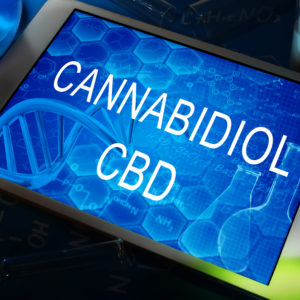As the coronavirus pandemic continues to impact our lives with high infection rates, a number of cannabis companies are toeing a precarious line with therapeutic declarations that their cannabidiol (CBD) products may help mitigate COVID symptoms, boost immunity against the virus and even cure COVID-19.
These predatory marketing schemes that are quite prevalent on the internet and in no small number of brick-and-mortar stores come with no viable proof and in fact, may be in direct contrast to the scientific evidence.
The troubling aspect to this is not limited to unethical marketing of questionable products. We should also be concerned about the lack of action from government authorities.
The Food and Drug Administration (FDA) very quietly submitted a report to Congress on the CBD marketplace. The findings are cause for serious concern, but the report was, for some reason, kept under the radar.
FDA staff tested and analyzed 147 CBD products for accurate labeling and contaminants as well as levels of Tetrahydrocannabinol (THC), which is the chemical responsible for the psychoactive effects of marijuana. THC has been linked to potential harmful side effects on infected coronavirus patients.
The vast majority of CBD products tested were found to be mislabeled or adulterated. More than half contained either more or less CBD than advertised and in fact, nearly 40 products had more than 120 percent CBD than the level listed.
If consumers are taking these products, while ingesting CBD via other methods, they could unknowingly take an alarmingly high dosage in a short period of time, which can cause liver damage and have dangerous interactions with other medications consumers may be taking.
Moreover, nearly 20 products contained THC without disclosure. This means consumers could unknowingly ingest the substance (or unwittingly give THC to pets or children) which can negatively impact personal safety, driving ability, mental health, drug test results, and more — all unbeknownst to them.
In our organization, we regularly witness well-intended employees testing positive for THC due to innocent use of an over-the-counter CBD products found in their local retailers, that promises to relieve pain in one form or another.
Many have lost their safety-sensitive employment positions as a result of unknown, measurable THC accumulation.
In Colorado, child poisonings from THC continue to be problematic from edible products claiming to be pure CBD. Scores of young people, believing the marketing hype around CBD, choose to self-medicate, some triggering underlying mental health conditions.
These are serious health risks about which the FDA should be screaming, not whispering.
Setting aside all of the recent findings regarding the mislabeling of CBD products, these CBD products do not comply with good manufacturing processes, and thus are not thoroughly tested for therapeutic value.
The bottom line is that FDA has concluded that CBD itself has not been generally recognized as safe (GRAS) for use in human or animal food, meaning that CBD is not safe for consumption. And yet, we see CBD infused teas, soda, lollipops, cookies, gummy candies, salsa, pet treats, etc. available for purchase across the country.
FDA warning letters and reports are not having an impact on the threats posed by websites and CBD shops in strip malls.
In seeking to boost public trust for a COVID vaccine, FDA Commissioner Stephen Hahn recently vowed in front of Congress that science and data must dictate without political interference. However, facing similar issues on cannabis, he seems to be taking a somewhat less protective stance.
Why should cannabis get a pass? Why is the clinical trial process so tightly preserved for a COVID vaccine, but only loosely applied to cannabis products, by which millions are similarly impacted based upon evidence of potential harm from FDA and countless other researchers?
Until we can prove CBD products are safe, consumers shouldn’t be unknowingly used as guinea pigs in a time when health concerns are at an all-time high and FDA has deemed clinical trials as the gold standard in ensuring safety and efficacy.

